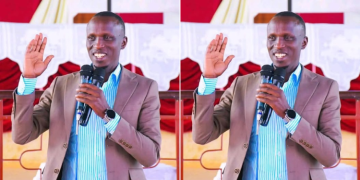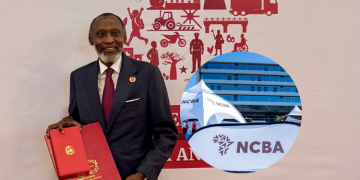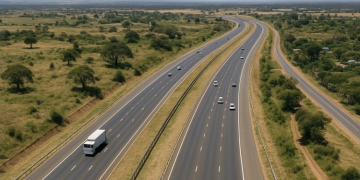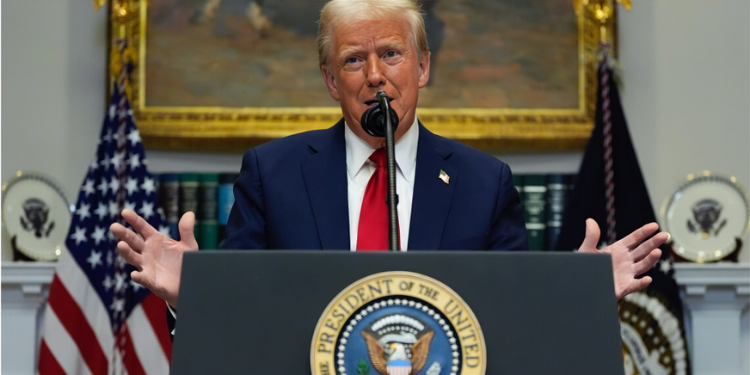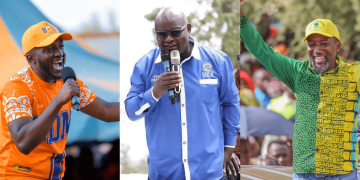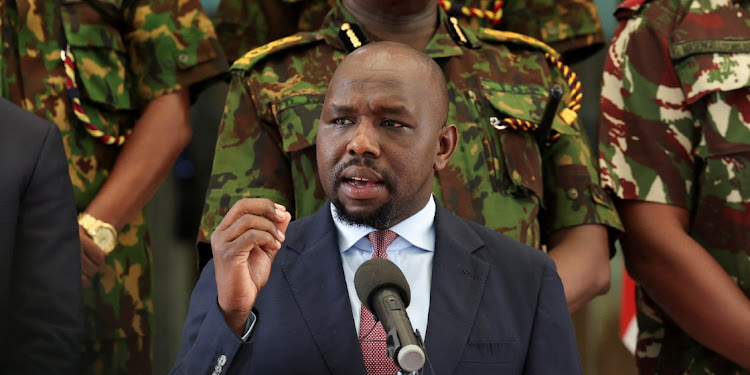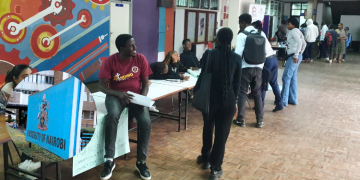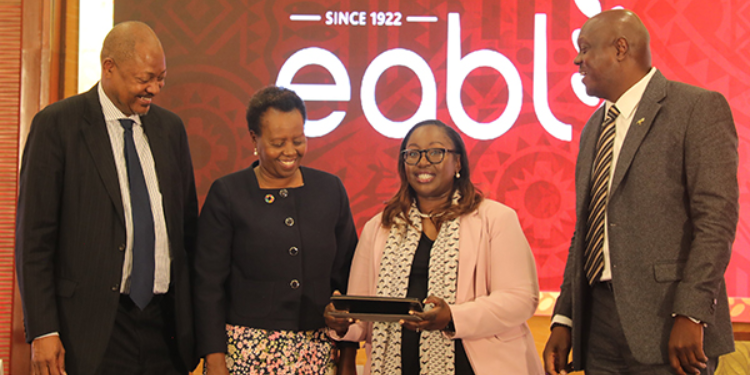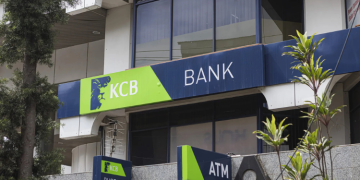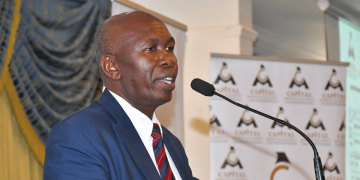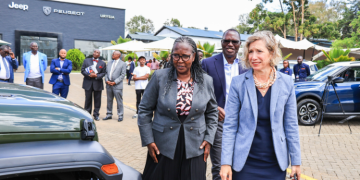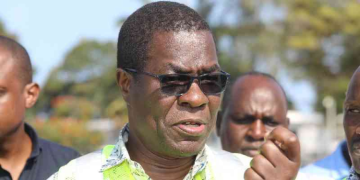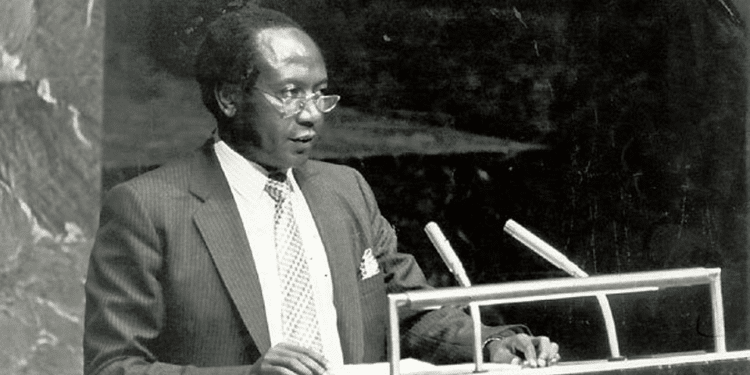Dr. Robert Ouko, who was Kenya’s Minister of Foreign Affairs, was found murdered after he disappeared from his Koru residence on the night of February 12, 1990.
His body was discovered several days later at Got Alila Hill, approximately 2.8 kilometers from his home.
The Foreign Affairs Minister was murdered days after he accompanied the then President Daniel Moi to Washington, DC, in January 1990, where the Kenyan delegation had travelled to the U.S. for a prayer breakfast with then U.S. President George H.W. Bush.
Following Ouko’s death and the mystery surrounding it, coupled with public uproar, the Kenyan government sought the services of investigators from New Scotland Yard in the United Kingdom to probe the death of the Foreign Affairs Minister.
Following Kenya’s request, the British Government sent a team of specialised investigators from New Scotland Yard, headed by Detective Superintendent John Troon.
During his stay in Kenya, Supt. Troon found it difficult to interview some witnesses due to interference from some government officials, who reportedly pressured him not to interview former Minister Nicholas Biwott before submitting an interim report.
He therefore concluded that President Moi shielded Biwott from interrogation. Troon was convinced that Dr. Ouko’s death was a case of homicide, not suicide, contradicting the initial suggestions from government officials and the Police Commissioner.
Robert Ouko Murder Probe
Before the end of his investigations, Supt. Troon testified to the Judicial Commission of Inquiry and named Biwott and Hezekiah Oyugi, who was the Permanent Secretary in the Office of the President in charge of Provincial Administration and Internal Security, as prime suspects in the murder.
Unfortunately, the Judicial Commission that was established to investigate Ouko’s death was disbanded by President Moi shortly after the names of Biwott and Oyugi were mentioned by the Scotland investigator.
Also Read: Today in History: Bokassa Declares Himself Emperor of Central African Republic in a $20M Ceremony
Shortly after the disbandment, several individuals, including Biwott and Oyugi, were arrested, though Biwott was later released without charges being pressed against him.
Several years after Ouko’s death, the Kenyan government, under the leadership of President Mwai Kibaki, renewed investigations into Ouko’s death through Parliament, which established a 15-member committee.
In its report, Parliament wanted bodies of people who they considered as witnesses in Ouko’s murder be exhumed. This article explores how people were considered as witnesses in Ouko’s murder died.
How People involved in Robert Ouko Murder Probe Died
- Hezekiah Oyugi
Hezekiah Oyugi, mentioned as the Permanent Secretary in charge of Provincial Administration and Internal Security, was listed as an adversely mentioned witness. Oyugi fell sick while he was still in police custody and later died while undergoing treatment in London.
The Director of Special Branch, now called the National Intelligence Service, James Kanyotu, was uncomfortable when asked about the circumstances under which Oyugi died upon incarceration at GSU headquarters in Nairobi.
Oyugi was also considered a prime suspect in Ouko’s murder. The Committee explicitly recommended the exhumation of his body as part of further investigations into the case and to determine the cause of his death, which occurred while he was in custody after being named a prime suspect.
- Philip Kilonzo
The parliamentary Select Committee, led by former Kisumu MP Gor Sungu, reported the former Police Commissioner as one of the witnesses in Ouko’s murder, having been one of the people investigating the circumstances under which he was killed.
According to some reports, Kilonzo was drinking a White Cap beer when he remarked that it tasted and smelled unusual. Shortly after, he collapsed and died, with his son responding to his distress call and rushing him to the hospital, where he was pronounced dead.
Some suspected poisoning, possibly linked to his knowledge of the 1990 assassination of Foreign Affairs Minister Robert Ouko, as Kilonzo was a key figure in that investigation. However, some reports say he died of a heart attack, dismissing reports of poisoning.
-
Joseph Yogo (Ouko’s driver)
Joseph Otieno Yogo was Dr. Ouko’s driver and security guard. He died two years later after Ouko’s death. In late 1992, he was admitted to a hospital in Nairobi and died a few days later of what was reported to be a “short illness.” The Select Committee investigating the death of Dr. Ouko included Mr. Joseph Yogo in a list of individuals whose bodies they recommended should be exhumed.
-
Dorothy Randiak (Ouko’s sister)
Dorothy Randiak was the sister of Dr. Ouko. She played a significant role in the investigation, having provided information to John Troon and testified before the Judicial Commission of Inquiry (the Gicheru Commission).
She was with Dr. Ouko at his Koru home on the evening of February 12, 1990, the night he disappeared, and noticed interference with his telephone lines. Dr. Ouko also confided worries about his safety, stemming from disagreements with Biwott, to her after returning from Washington, DC.
Also Read: Today in History: Journalist Who Covered Tom Mboya’s Assassination Dies in Plane Crash
However, Dorothy Randiak was confirmed to have been deceased by the time the Committee was conducting its investigations and compiling its report (which was completed by March 2005).
In testimony before the Committee on December 6, 2004, Mr. James Lando Khwatenge, a former Inspector of Police in the Special Branch, referred to witnesses who were involved in the murder and had been involved in mysterious deaths. In this context, he specifically mentioned, “the late Hon. Dr. Ouko’s sister died” and stated that those deaths were “not natural.”
Follow our WhatsApp Channel and X Account for real-time news updates.


